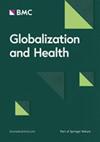卫生应急和灾害风险管理能力与课程规划研究:文献综述和横向调查
IF 5.9
2区 医学
Q1 PUBLIC, ENVIRONMENTAL & OCCUPATIONAL HEALTH
引用次数: 0
摘要
随着地方、国家和全球各级危险事件的威胁日益增加,地方、国家和国际社区迫切需要一支有效的卫生应急和灾害风险管理(Health EDRM)队伍。然而,目前还没有普遍接受的卫生应急与灾害风险管理能力和课程。本研究旨在通过文献综述和横断面调查,确定全球范围内的卫生 EDRM 能力和课程。我们用英语和日语进行了文献综述。我们在 MEDLINE、EMBASE、CINAHL(英文)和 ICHUSHI(日文)数据库中检索了 1990 年至 2020 年间发表的期刊论文。随后,于 2021 年 10 月向世界卫生组织卫生 EDRM 研究网络成员和其他推荐专家发送了一份横向调查,以确定文献检索中未指明的能力模型和课程。从搜索中发现 19 项研究与卫生 EDRM 能力和课程相关。大多数能力模型和课程来自美国。这些领域包括知识和技能、应急系统(包括事件管理原则)、沟通、批判性思维、伦理和法律方面以及管理和领导技能。横向调查共收到 65 份回复,估计回复率为 25%。对 21 个能力模型和 20 个针对管理人员和一线人员的课程进行了分析;管理人员的决策和领导技能被认为是至关重要的。为加强卫生工作者队伍,应将决策和领导技能纳入卫生部门的 EDRM 能力和课程中。本文章由计算机程序翻译,如有差异,请以英文原文为准。
Mapping study for health emergency and disaster risk management competencies and curricula: literature review and cross-sectional survey
With the increasing threat of hazardous events at local, national, and global levels, an effective workforce for health emergency and disaster risk management (Health EDRM) in local, national, and international communities is urgently needed. However, there are no universally accepted competencies and curricula for Health EDRM. This study aimed to identify Health EDRM competencies and curricula worldwide using literature reviews and a cross-sectional survey. Literature reviews in English and Japanese languages were performed. We searched MEDLINE, EMBASE, CINAHL (English), and the ICHUSHI (Japanese) databases for journal articles published between 1990 and 2020. Subsequently, a cross-sectional survey was sent to WHO Health EDRM Research Network members and other recommended experts in October 2021 to identify competency models and curricula not specified in the literature search. Nineteen studies from the searches were found to be relevant to Health EDRM competencies and curricula. Most of the competency models and curricula were from the US. The domains included knowledge and skills, emergency response systems (including incident management principles), communications, critical thinking, ethical and legal aspects, and managerial and leadership skills. The cross-sectional survey received 65 responses with an estimated response rate of 25%. Twenty-one competency models and 20 curricula for managers and frontline personnel were analyzed; managers' decision-making and leadership skills were considered essential. An increased focus on decision-making and leadership skills should be included in Health EDRM competencies and curricula to strengthen the health workforce.
求助全文
通过发布文献求助,成功后即可免费获取论文全文。
去求助
来源期刊

Globalization and Health
PUBLIC, ENVIRONMENTAL & OCCUPATIONAL HEALTH-
CiteScore
18.40
自引率
1.90%
发文量
93
期刊介绍:
"Globalization and Health" is a pioneering transdisciplinary journal dedicated to situating public health and well-being within the dynamic forces of global development. The journal is committed to publishing high-quality, original research that explores the impact of globalization processes on global public health. This includes examining how globalization influences health systems and the social, economic, commercial, and political determinants of health.
The journal welcomes contributions from various disciplines, including policy, health systems, political economy, international relations, and community perspectives. While single-country studies are accepted, they must emphasize global/globalization mechanisms and their relevance to global-level policy discourse and decision-making.
 求助内容:
求助内容: 应助结果提醒方式:
应助结果提醒方式:


